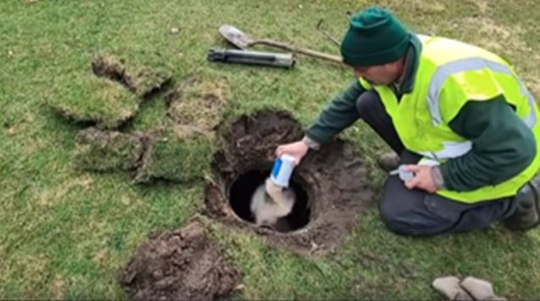Septic system additives have long sparked controversy among homeowners and industry professionals alike. These products promise to aid in the breakdown of waste and maintain the overall health of your septic system. But do they live up to the hype?
In this blog post, we're delving into the gory details of how additives work in septic systems, providing an unbiased look into their effectiveness, potential drawbacks, and how they might fit into your septic system maintenance routine.
What Are Septic System Additives?
Septic system additives (sometimes also referred to as stimulators and enhancers) are substances that are added to a septic tank with the aim of enhancing its performance. They are meant to break down the waste materials faster and more thoroughly, thereby reducing the possibility of system clogs and backups. Many additives are incredibly user-friendly and easily incorporated into your system. For example, we offer a live bacteria additive that can be directly poured into your system through your kitchen sink drain.
Septic system additives can be divided into two main categories:
- Chemical Additives: These may include inorganic and organic compounds such as sulfuric acid, hydrogen peroxide, or other chemicals.
- Biological Additives: These are typically living organisms such as bacteria, and enzymes.
In a nutshell, septic system additives operate by introducing beneficial compounds or organisms into the septic tank to aid in waste decomposition. Chemical additives, composed of inorganic and organic compounds, work by physically breaking down solids and scum layers in the tank. They act in a similar fashion to household drain cleaners, helping to prevent clogs and backups in the system.
On the other hand, biological additives work through the action of living organisms such as bacteria, and enzymes. These organisms feed on the organic waste material present in the septic tank, breaking it down into simpler substances, boosting the natural decomposition process, and thus promoting the efficient functioning of the septic system.
Benefits of Using Septic System Additives
Using additives in your septic system can offer several benefits. First and foremost, these additives can enhance the bacterial population in the septic tank, promoting efficient waste decomposition. This can greatly improve the overall function of the system, preventing clogs and backups that can lead to costly repairs.
Some specific additives are designed to break down tougher substances like grease and oil that naturally accumulate over time. By breaking down these materials, additives can minimize the risk of blockages and maintain the smooth operation of the system.
Additionally, certain additives can reduce unpleasant odors associated with septic systems. By controlling the growth of odor-causing bacteria or neutralizing these odors, these additives can make living in proximity to a septic system far more pleasant.
Lastly, septic system additives can provide environmental benefits. By promoting thorough decomposition of waste, these additives reduce the risk of harmful pathogens or chemicals seeping into the groundwater. This protects local ecosystems and contributes to overall environmental health.
Limitations of Septic Tank Additives
Despite the benefits they bring to the table, septic tank additives cannot and should not be viewed as a cure-all for septic system issues. Firstly, they do not eliminate the need for regular septic inspections or pumping of the septic tank. Solid waste accumulates over time and needs to be physically removed; this is something additives cannot achieve.
Additionally, while additives facilitate the breakdown of waste, they cannot repair a failing or damaged system. Problems such as broken pipes, improper drain field size, or a cracked tank cannot be solved by simply adding more bacteria or chemicals into the mix.
Moreover, excessive reliance on additives can potentially lead to downstream pollution or even excess solids making their way into your soil absorption system. If waste is broken down too rapidly, it may not be adequately treated before it enters the drain field, which could subsequently contaminate groundwater.
In summary, while septic tank additives can enhance the efficiency of a septic system, they are not a replacement for routine maintenance. Regular inspections and pumping are essential to ensure the longevity of your system and prevent costly repairs or replacements.
Have questions about septic additives? Call Wind River Environmental and talk to one of our experts.




.2504171222540.png)

